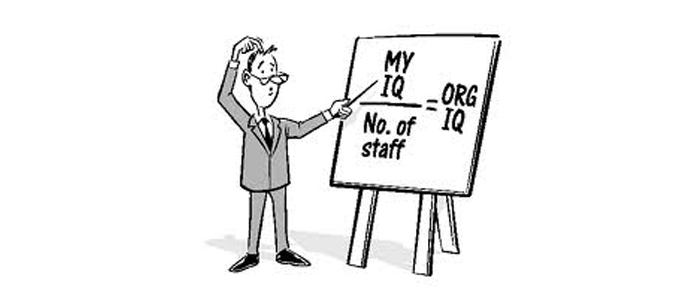A recent client we worked with is a premium property brand that helps their clients buy, sell, let and rent all over the world. The directors had identified that there were some Heads of Office who, although effective in producing results, tended to do this by their own sales efforts, without necessarily harnessing the skills and efforts of their team members as effectively as they might. The directors were convinced that the Heads of Office could be more successful with more time and focus directed towards managing their teams.
What issues were they facing?
A very typical issue in professional services organisations is that of specialist managers who, when up against demanding targets and deadlines, revert to using their own tried and tested professional skills to resolve the problems themselves, rather than employing management skills and structures to gain the involvement of their teams in achieving targets. Very often, such managers will make a virtue of this behaviour, saying things like:
- I believe you have to lead from the front and set an example
- My team expect me to muck in when the going gets tough
- Nobody can do it as well as I can
- I can’t trust them to produce the results – I have to do it myself
The results of behaving in accordance with these beliefs include: burnout among senior managers, who are effectively trying to do two jobs; demotivation among more junior staff who are not being trained, gaining the experience they need, nor producing the success they need to remain motivated; and, not least, lower levels of results in the team, as one person can only produce so much.
How did we help?
Working with individual Heads of Office we combined bespoke one to one executive coaching with a management skills programme designed to give them all the understanding and management tools they needed, to build a highly successful team in their office. The programme was designed to produce:
- Effective team leadership and productive teamwork
- Effective team and other business meetings
- ‘Soft’ targets (behaviour, personal development etc) managed with rigour and objectivity
- A coaching style of management
- Consistent objective setting and review of staff leading to fair and systematic assessment of performance
- Reduced stress and more effective use of time
- Improved revenue / profit from outstanding client service
During the coaching we successfully addressed individual issues such as time management, lack of confidence and difficult professional relationships.
As a result, the performance of individual managers and their teams significantly improved, one area doubling predicted results between January and April 2015, the period of the coaching. Team members became noticeably more accountable and more engaged in the business, and in some cases key members who had contemplated moving to a rival office subsequently decided to stay.
